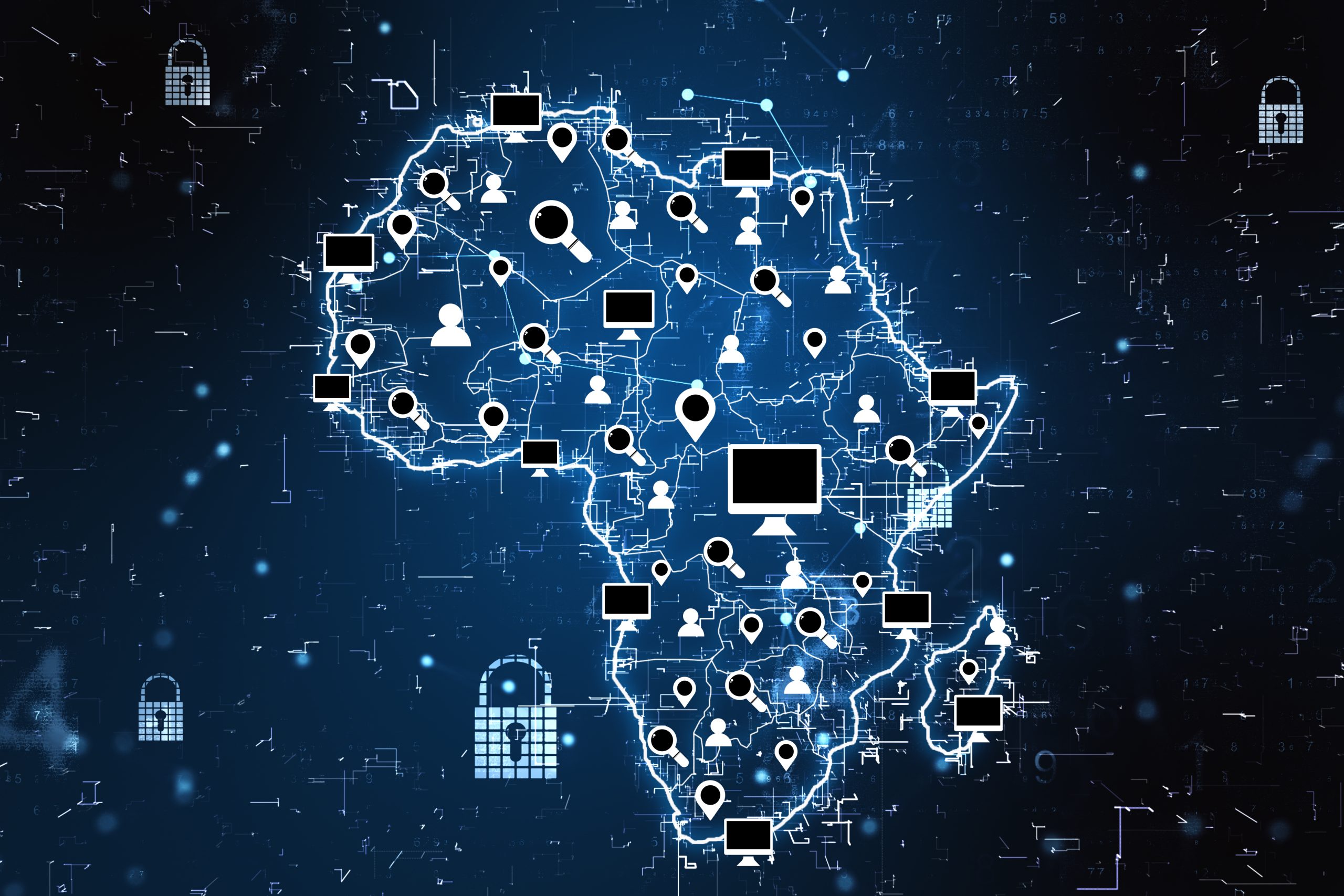Cybersecurity in Africa – Strengthen the Digital Economy

Discover the importance of cybersecurity to Africa’s internet economy.
The digital economy of Africa is predicted to add $180 billion to the continent’s overall economy by 2025, increasing to $712 billion by 2050. Accordingly, African governments and their stakeholders are developing new strategies to:
- Connect approximately 700 million Africans sans internet, and
- Tackle speed and affordability concerns for those who already have it.
But cybercrimes are rapidly increasing, threatening both economies and individual safety. What is cybersecurity and how can cybersecurity professionals safely drive progress in Sub-Saharan Africa?
Africa’s Cybersecurity Gap
Africa’s cybersecurity challenges differ significantly from those faced by other countries. There are many factors that make Africa more vulnerable than other regions. Cybercriminals are taking full advantage of the situation.
While technical cybersecurity attacks are on the increase, there are three main issues maintaining SSA’s exposure to cyber threats:
- A lack of awareness and limited technical training to implement effective security measures.
- Insufficient certified cybersecurity specialists – reportedly a 100,000-person gap.
- The majority of African governments have not kept up with the fast evolution of cybercrime. According to the Africa Center for Strategic Studies, “Only 15 African countries have completed national cybersecurity strategies, which lay out strategic objectives and assign government-wide responsibilities for cyber threat monitoring and response.”
A Step in the Right Direction
Do not despair! The picture is not all doom and gloom. In fact, governments in Africa are slowly taking steps to protect users from online attacks.
Regional partnerships are collaborating to strengthen their cybersecurity capabilities by:
- Establishing a strategic cybersecurity policies framework
- Improving the members’ level of national mechanisms for cybersecurity
- Increasing coordination between all stakeholders
- Developing confidence in the surety of information and communication technologies (ICT).
Some positive initiatives include:
- The African Union Convention on Cyber Security and Personal Data Protection (Malabo Convention) (2014)
- Launch of the AU’s Internet Security Infrastructure Guidelines For Africa (2017)
- The Global Forum on Cyber Expertise (GFCE) hosted by Ethiopia (2019)
- Adoption of a regional cybersecurity strategy by the Economic Community of West Africa (2021)
- The progress and example being set by countries like Ghana.
Accelerating the Gains
While many African countries are moving in the right direction, there is still much work to be done to create a more secure environment for their users. Governments in the region should prioritize cybersecurity and take the necessary steps to strengthen their digital defenses to address the growing threat posed by online attacks:
- Invest more money in global strategic engagements, enhanced infrastructure, and awareness-raising efforts related to cybersecurity.
- Deal with the concerns and/or misgivings raised by the few nations that have ratified international agreements on digital policy.
- From both a technical and policy standpoint, give priority to boosting cybersecurity capacity.
- Keep working together to share best practices and facilitate peer learning with credible external stakeholders. (From the continent, both Tanzania and Mauritius are highly ranked on the ITU’s Global Cybersecurity Index of 2020. Their commitment, policies, and execution of cyber-resilience are exemplary.
AFR-IX Telecom is an internet service provider that delivers internet and data services to enterprises, international carriers, and telecommunication operators in Africa. Don’t be a victim of poor cybersecurity. Get in touch with AFR-IX Telecom for secure, reliable connectivity solutions.




